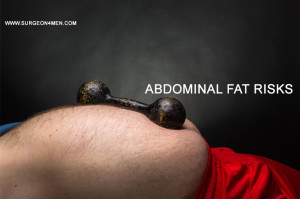SAFE EXERCISES AFTER MASSIVE WEIGHT LOSS
We have discussed massive weight loss (MWL), what it means, how it can be achieved, and its consequences / effects on the body in previous blogs. In this section we are going to focus on safe exercises after massive weight loss and what we can do to maintain the desired weight.
Most people are aware that massive weight loss, either through healthy eating and exercise, or through bariatric surgery can result in looseness and sagging in different parts of the body. Please refer to our detailed discussions on this in previous blogs. Some people, even some doctors are still confusing body contouring procedures such as tummy tuck and breast reduction with surgical weight loss procedures. Lets be clear on this. Weight management procedures neither fall into the category of “cosmetic” procedures, nor are designed to contour the body. They are collectively called “BARIATRIC SURGERY“. They are designed solely for weight management in individuals who are not able to lose weight through non-surgical means. The most popular of these procedures are the Lap-Band and the Gastric Sleeve. There are other procedures such as the Gastric Bypass that have lost their appeal. MWL in most cases results in redundancy and sagging in different parts of the body, and correction of these redundancies is what has come to be known as “POST-BARIATRIC RECONSTRUCTION”. These procedures include operations such as different varieties of Tummy Tuck, Breast Life, Thigh Lift, Body Lift, etc. In most cases these procedures are not purely cosmetic and are medically necessary.
So, as can be seen, MWL patients fall into two different categories: One is those who are able to do it through healthy eating and exercise, the other is those who undergo surgery.
Safe Exercises During and After Non-Surgical Massive Weight Loss
 Individuals who are able to lose a massive amount of weight through healthy eating and exercise in general do not have any exercise restrictions and as a matter of fact the more they exercise the more effective their plan will be and the sooner they will reach their desired weight. However, caution should be exercised in placing the body into what is known as “negative balance”, i.e. burning more calories than taking in. The body’s intake should be well-balanced in terms of water, minerals, and electrolytes; carbohydrates and fat should be reduced to a minimum; adequate protein should be included in the regimen.
Individuals who are able to lose a massive amount of weight through healthy eating and exercise in general do not have any exercise restrictions and as a matter of fact the more they exercise the more effective their plan will be and the sooner they will reach their desired weight. However, caution should be exercised in placing the body into what is known as “negative balance”, i.e. burning more calories than taking in. The body’s intake should be well-balanced in terms of water, minerals, and electrolytes; carbohydrates and fat should be reduced to a minimum; adequate protein should be included in the regimen.
The only limiting factor in exercises for this group of people is their physical stamina and tolerance. Aside from adequate cardio exercises, major focus should be placed on toning the muscles of the abdomen, arms, chest, back, and thighs. Even though most of the post-MWL sagging occurs in the skin and the soft tissues underneath, if the underlying muscles are strengthened and well-toned, there is bound to be less sagging of the overlying skin and soft tissues.
Safe Exercises During and After Surgical Massive Weight Loss
Massive weight loss after bariatric surgery obviously does not occur immediately and suddenly. All of these operations are designed to help the individual gradually lose the excess weight. The intention is to lose the excess weight over a course of 6-12 months. Meaning that, for example if an individual is to lose 100 lbs, in the course of 12 months this would translate into 8.3 lbs / month, or approximately 2 lbs / week, which is a reasonable and safe weight loss regimen. However, it is only through healthy eating and exercise that this weight loss can be maintained. We will discuss healthy eating after bariatric surgery in a later blog, but for now lets focus on safe exercise.
Obviously bariatric surgery involves incisions. Fortunately, the most popular bariatric procedures, i.e. the Lap-Band and the Gastric Sleeve, are laparoscopic procedures, meaning procedures that are done through tiny incisions using videoscopic manipulation. Therefore recovery from these procedures is quite rapid and there is almost no post-operative pain. Patients can usually begin upper and lower body exercises, and brisk walking within a few days. This can gradually be advanced to full scale muscle toning, cardio, and weights within 4-6 weeks after surgery. Abs should be held off until at least 6 weeks from the surgery, then abs can be started gently and gradually advanced over a 4-6 week period.
As was mentioned in the previous section on non-surgical MWL, the more the muscles of the arms, chest, back, abdomen, and thighs are toned and strengthened, the less will be the sagging and redundancy resulting from the MWL.
Once again, lets clarify that procedures such as body lift, thigh lift, and breast lift are not weight management procedures. These are contouring procedures that come into play AFTER massive weight loss has occurred. These procedures have their own safe exercise guidelines which will be covered in future blogs.

